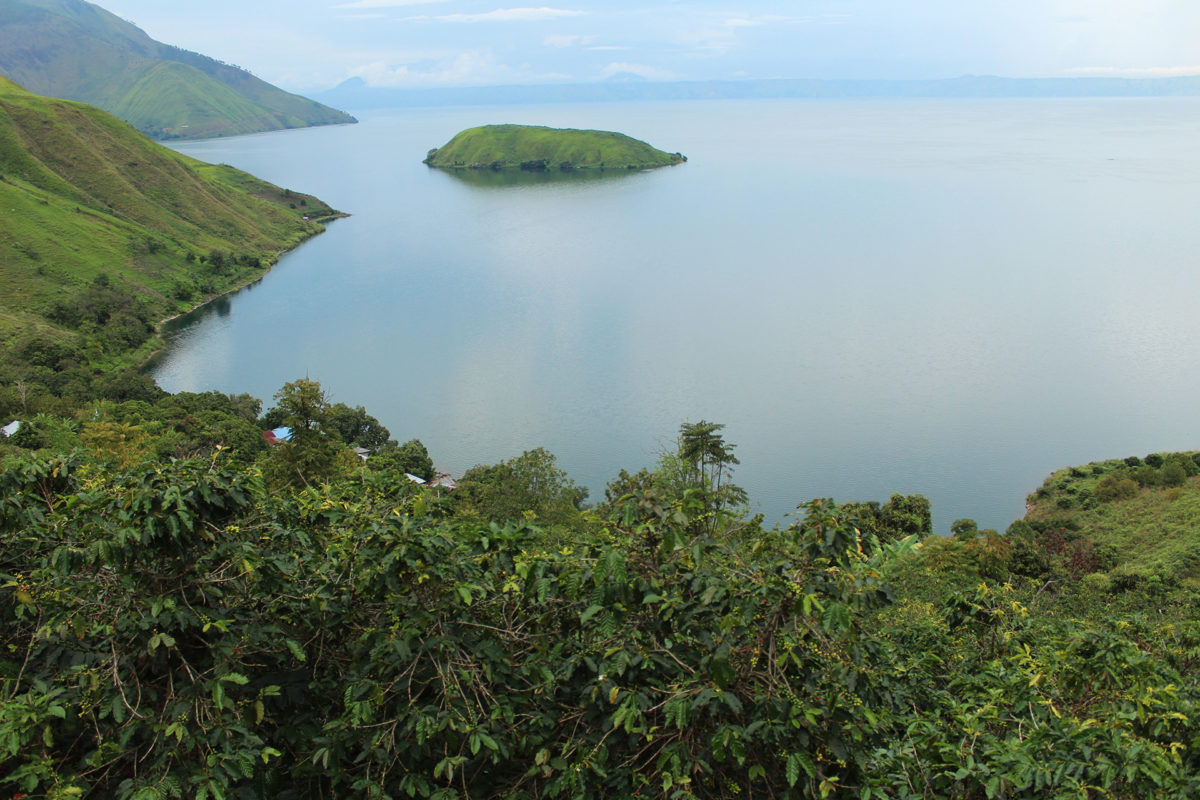When Denny Sitohang started his own business—Omerta Coffee—he was still new to the term “third wave coffee.” At that time, back in 2012, he still bought ground coffee from a traditional market; this is what he first served to visitors at his coffee shop, which is located outside the city of Medan, in Northern Sumatra.
How quickly things change. The third wave coffee movement has had a massive impact on coffee lovers across Indonesia, growing from a trend to become something much more. Today the city of Medan is home to coffee bars brewing single origin, single estate, or even single farm coffees brewed using V60, siphon, AeroPress, or other internationally known manual brewing tools.
Cafe owners like Denny Sitohang have been an important part of this movement, sourcing and brewing coffee from various gardeners across the north of the island of Sumatra. But it still surprises him to learn of Medan’s growing fame for coffee; the prestige around North Sumatran coffee is not well-known domestically. Departing from that awareness, Sitohang also began to introduce various coffees from various regions in his coffee shop, such as Mandailing, Lintong, Sidikalang, and other, less-known Indonesian coffee regions with extraordinary quality potential.
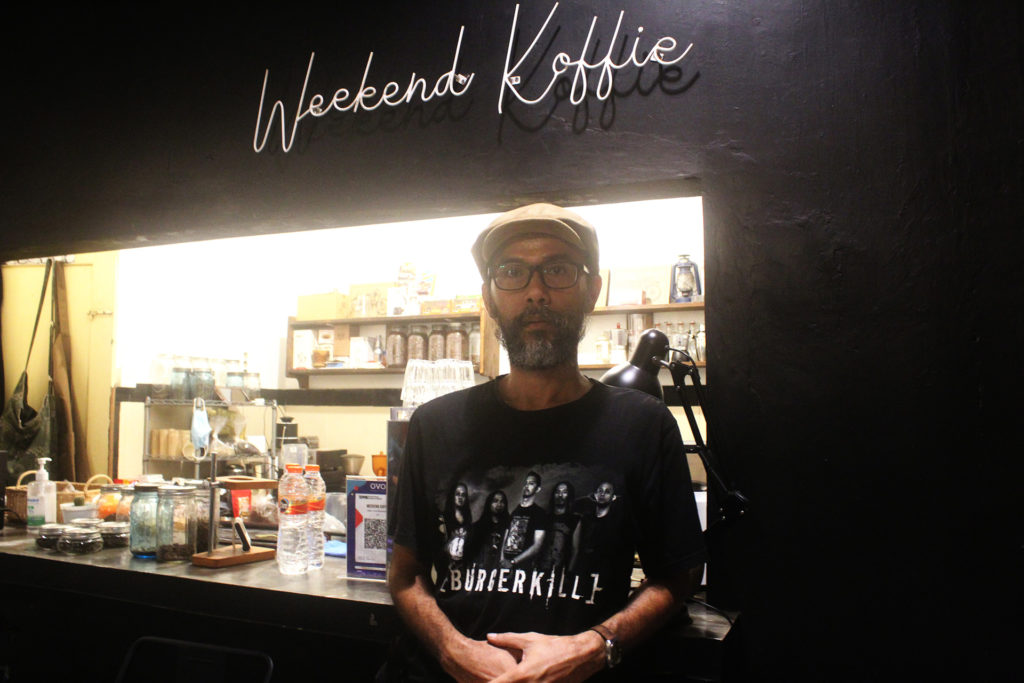
“I was so surprised,” Sitohang tells Sprudge. “It turns out that this city is a Sumatran coffee hub, but many still didn’t know it.”
Over the last six months of 2021, Sitohang began to slowly change the concept of his coffee shop. He looked for coffee beans from various regions in North Sumatra and named each brew according to the region of origin. Now coffee farmers are selling their coffees to him directly, with micro capacity and fair price negotiations. It’s the kind of access to product that cafe owners in other parts of the world can only dream of.
“I bought their coffee at a price slightly higher than the market price,” he tells me. Today Omerta is helping lead the third wave of coffee in Medan, as the city’s reputation grows towards becoming a full-fledged coffee hub.
Third wave coffee has changed the coffee industry not just in North Sumatra, but across Indonesia. In Medan, the provincial capital, this trend shows no sign of slowing. Coffees from Gayo, Aceh, and other provinces are also mostly exported through the port of Belawan in this city.
“This third wave coffee trend is marked by the growth of the specialty coffee industry in the country, the increasing number of coffee shops, as well as the way people enjoy coffee, people in this city no longer only enjoy coffee in two flavors, black coffee, and milk coffee,” said Suyanto Husein to Sprudge, a veteran coffee exporter and former Chairman of the Association of Indonesian Coffee Exporters and Industries chapter of North Sumatra.
People’s curiosity about coffee has also changed the way they enjoy specialty coffee with a variety of brewing innovations. That situation inspired Robin Boe, a young entrepreneur, to open a shop for coffee and brewing equipment—Otten Coffee—back in 2015.
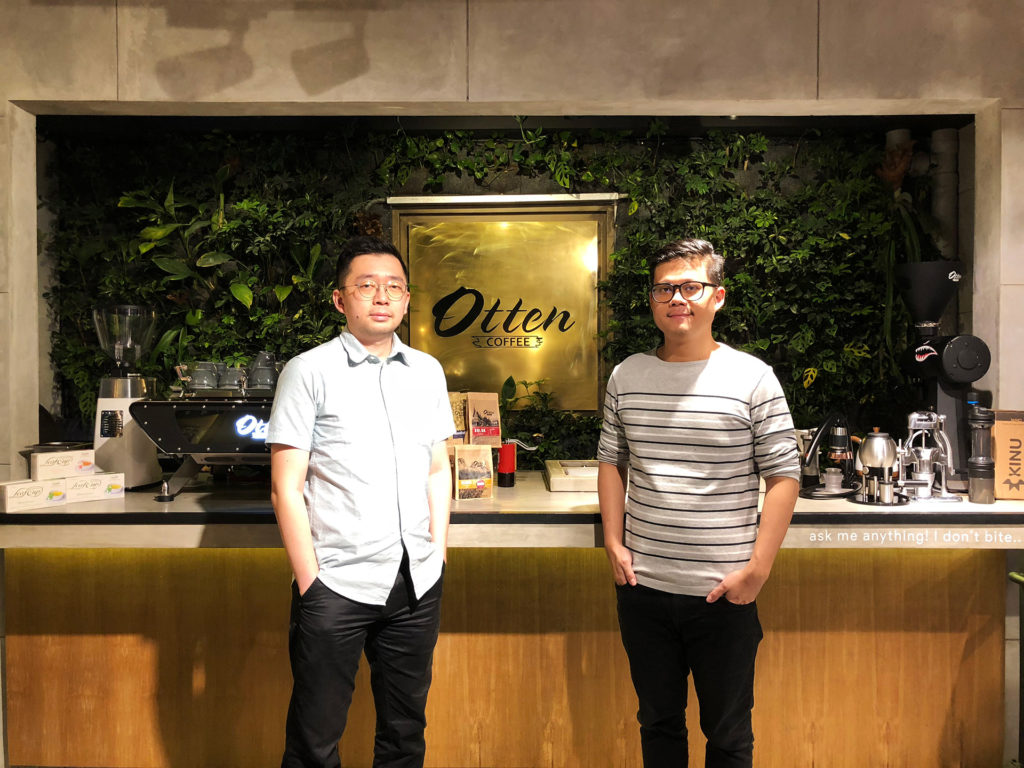
“Initially we saw a problem in Indonesia where coffee lovers find it difficult to enjoy quality coffee and buy supporting equipment, including myself,” Boe tells me. Today the shop is known as the largest coffee equipment distributor in Indonesia.
So far I’ve talked about cafes and equipment distributors, but perhaps the most profound impact third wave coffee has had in Indonesia is among the farmers and producers. Two coffee farmers from different villages who talked to Sprudge acknowledged that reality. This trend makes them focus on the quality of the coffee and feel a more reasonable profit from the results of their hard work.
One of them is Fransiska Silaban, a Lintong coffee farmer in Lobu Tua Village, Humbang Hasundutan Regency who has been selling her coffee within the third wave coffee industry since 2015.
She said when the third wave coffee trend was accompanied by an increase in demand for specialty coffee, she changed the pattern of her family’s coffee plantation, covering an area of six hectares above an altitude of 1,450 meters above sea level. “Slowly we started changing the process by applying a wet hull and full wash pattern, and only picking red cherries,” she says. The process is slower, but the benefits are greater. With that process, he can sell green beans at a higher price. He can sell up to IDR 85,000 ($ 5.80) green beans per kilogram.
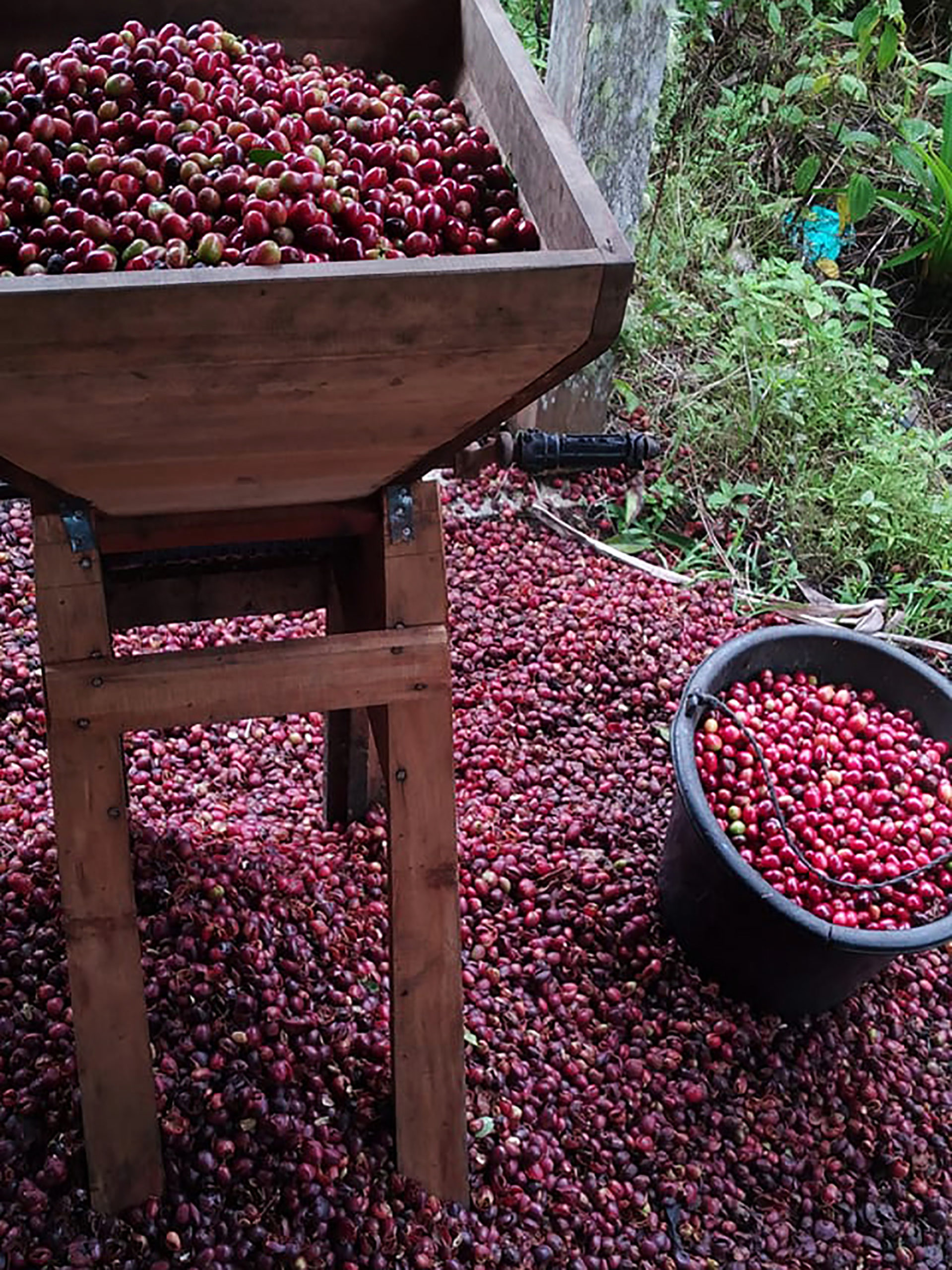
“Grain coffee is only valued at around IDR 25,000 ($ 1.72),” she said. Apart from domestic sales, she also sells her coffee to Taiwan and the United States. Although the quantity has decreased due to the pandemic, she is still able to sell an average of 600 kilograms of specialty coffee to the domestic market in a month.
Another coffee farmer, Shafron (of Baron Coffee), admitted that third wave coffee has provided sustainable economic benefits. Since eight years ago he started growing Mandailing coffee on a coffee plantation covering an area of four hectares above an altitude of 1,350 in Kayulaut Village in Mandailing Natal Regency, and only processed specialty quality coffee.
“Since the beginning, I don’t want to sell coffee grain because the price is very low, sometimes it is only priced at IDR 10,000 ($ 0.69) per kilogram. That’s why I still choose specialty coffee processing because I can sell it at a high price, and people can enjoy good quality coffee,” he said.
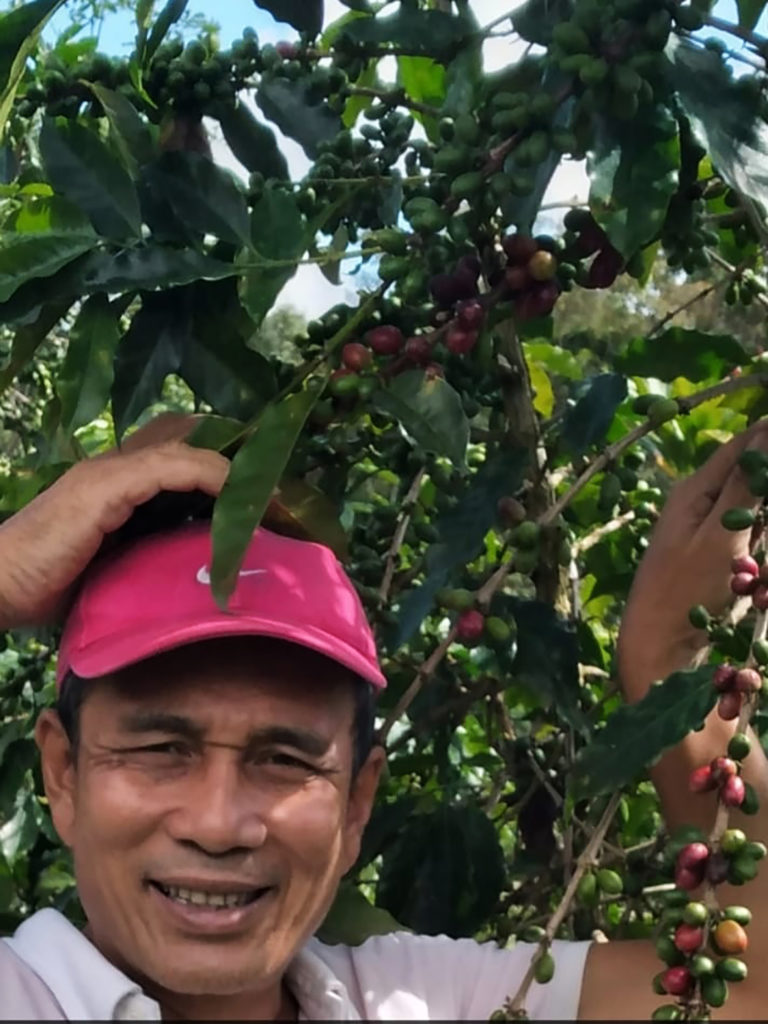
Nowadays he supplies 100-200 kilograms of specialty coffee every month to his regular cafe and roastery entrepreneurs in Medan, Jakarta, and Malang (West Java) with prices starting from IDR 100,000 ($ 6.88) per kilogram.
“I only sell special coffees that are processed by full wash, honey, and natural processes,” he said.
Choosing specialty coffee processes has made him survive the COVID-19 pandemic, even though demand is falling. “I feel lucky from the start to focus on specialty coffee, because at least the demand is continuing,” he said.
Meanwhile back in Medan, Denny Sitohang first started roasting on a small batch machine not long after opening his cafe. As time went on, he started selling more, and roasting more, while developing a true “direct trade” relationship with coffee farmers, buying their coffees from them directly and selling them in his cafe. Today he is never afraid of running out of excellent single-origin coffee beans from North Sumatra.
“Whenever I need coffee, they are always there even when coffee stock is low and demand is high. I feel lucky because I have established connections with them [farmers] all this time,” he tells me, and he’s not hte only one. Several cafe owners in Indonesia have done the same thing, opening cafes as well as roasteries. Visitors can enjoy coffee and find out how the coffee they drink is processed, from the roaster and the barista.
For Sitohang and dozens of specialty coffee industry players in Medan, third wave coffee is a crucial coffee movement. Some might call them “idealists”, or “coffee enthusiasts”, but what they’re doing for the coffee industry in North Sumatra is something much bigger.
“Yes, some people think we are idealists,” he admits to me, “but actually what I and other coffee entrepreneurs in the realm of third wave coffee do is find the true meaning of coffee. We get to enjoy that sensation by drinking specialty coffee in the same region where it was produced, which is an incredible sensation. For us, it’s not only about financial gain, but also passion and satisfaction.”
Tonggo Simangunsong is a freelance journalist based in Medan city, North Sumatra, Indonesia, the author of Medan Coffee Guide. This is Tonggo Simangunsong’s first feature for Sprudge.
